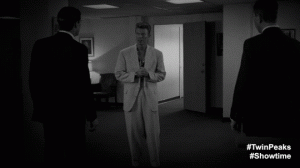Don’t Write Anything

Freelance writing is a tough go sometimes. Anyone who’s ever daydreamed of leaving their Day Job (or, who knows, their whole life, family, and social circle) behind in order to become a “digital nomad” of some sort knows that just getting things off the ground can be an intimidating experience. And it doesn’t help that most established freelance writers (my ears are burning) find it impossible to explain clearly how in the world they got established in the first place. My own career trajectory is kind of blurry, to be honest; it’s literally
1. Decide to go freelance
2. Apply for every job available
3. ???
4. Profit!
One thing I’ve noticed a lot of new freelance writers doing is jumping on forums and applying for jobs by saying that they can write “anything.” I remember doing that myself in the early going, having such confidence in my abilities and being so certain that this would somehow be persuasive to potential clients.
It’s not. Don’t do it.
Specify
It’s probably true. You probably can write anything—I know I can. Give me a clear enough brief and some decent guidelines and I can replicate voice, emulate style, and crank out whatever writing you need. Heck, in college I got into trouble because I imitated the style of academic writers too closely after reading their books; I was called in to a conference with a teacher who couldn’t believe I hadn’t plagiarized the words, once.
But being able to write anything doesn’t mean you should.
First of all, it’s a weak marketing technique. The word ‘anything’ is so non-specific as to be meaningless, and sounds like empty bragging. There’s simply no reason to believe you if you can’t even be specific about the things you’re good at doing.
Second, it’s bound to get you into work you don’t want to do. Now, if you need to make a living it’s easy to get into the mindset of taking on any kind of work, but writing isn’t a mindless activity that you can grind through. Even crap writing for money requires some engagement and mental work, and that means if your work is boring or involves a subject you don’t really enjoy, it’s going to be tedious. And that can affect everything from the quality of your work to your enjoyment of life.
Instead of telling people you can write ‘anything,’ it’s better to think about what you want to write about and focus there—with the caveat that if you need to make some money there’s nothing wrong with tossing that advice out the window and getting down to business.
Wait, I think I just remembered what Step 3 was supposed to be: Day drinking. And plenty of it.










